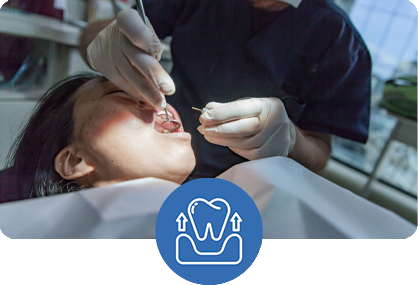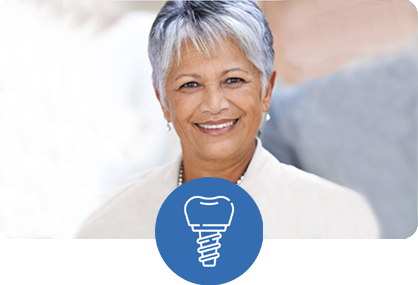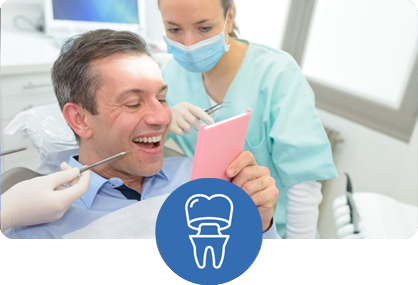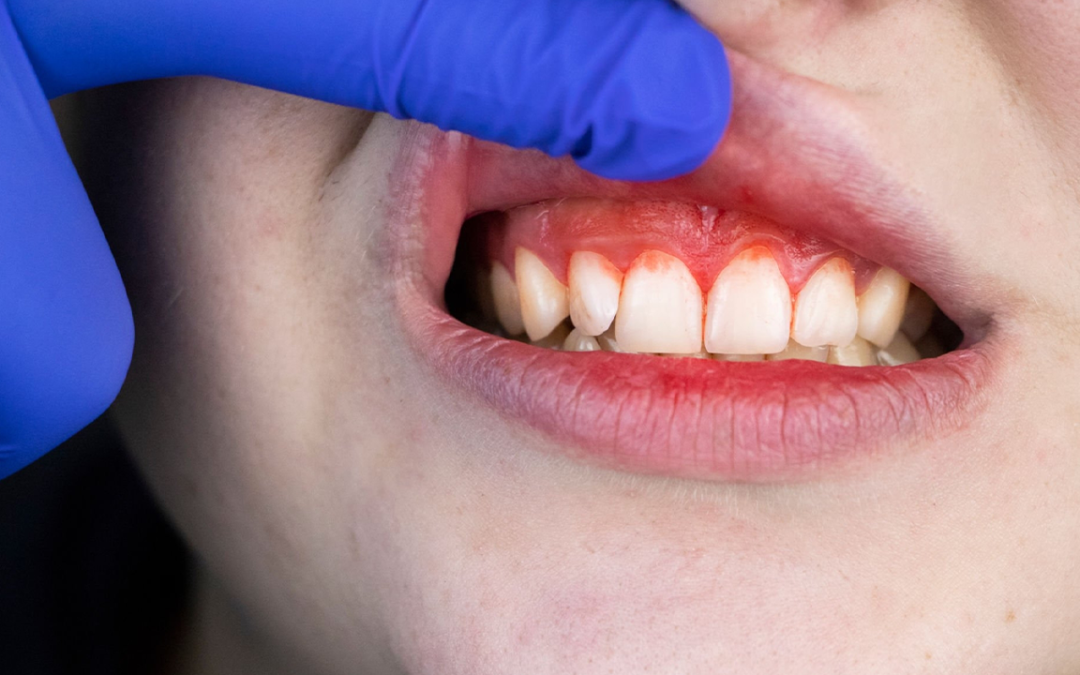Key Takeaways
- Quality sleep is essential for overall health and well-being
- Consistent sleep schedules help maintain your body’s natural rhythms
- Sleep disorders like sleep apnea can significantly impact your health
- Proper sleep hygiene practices improve sleep quality
- At Oakwood Dental Clinics, we offer solutions for sleep-related dental issues
- Dental health and sleep quality are closely interconnected
- Nutrition and exercise significantly influence sleep patterns
- Technology use before bedtime can disrupt natural sleep cycles
- Aging brings unique sleep challenges that require specialized dental care
- Stress management techniques improve both sleep quality and oral health
August Is National Health Awareness Month: Let’s Talk About Sleep!
August is National Health Awareness Month — and there’s no better time to focus on something that affects nearly every aspect of your well-being: your sleep.
Sleep-related breathing disorders, especially Obstructive Sleep Apnea (OSA), are often underdiagnosed and undertreated. Yet, they play a major role in your energy levels, heart health, mood, memory, and even blood pressure and weight control.
Why Sleep Matters for Your Health
When breathing is disrupted during sleep — as it is with OSA — your body is deprived of vital oxygen and rest. This constant interruption puts a strain on your brain and cardiovascular system and can increase your risk of:
- High blood pressure
- Stroke
- Type 2 diabetes
- Depression and anxiety
- Fatigue and memory problems
Understanding the Connection Between Sleep and Overall Health
Sleep is a vital process that affects almost every part of our health. Getting good sleep is just as important as eating well and exercising. When we sleep, our bodies repair tissues, strengthen memories, and boost our immune systems.
Research shows adults need 7-8 hours of quality sleep each night to work properly. But with phones, computers, and stress, many people find it hard to sleep well. Poor sleep can lead to heart disease, diabetes, weight gain, and a weaker immune system.
At Oakwood Dental Clinics, we know there’s a strong link between oral health and sleep quality. Dental problems like jaw disorders (TMJ) and sleep apnea can make it hard to sleep well. We look at your whole health, not just your teeth, to help you feel better overall.
Not getting enough sleep can also hurt your thinking, mood, and mental health, possibly causing depression and anxiety. It’s a two-way street – health problems can mess up your sleep, and bad sleep can make health problems worse, creating a tough cycle to break.
The Science of Sleep Cycles and Their Impact on Health
To understand how sleep affects our health, we need to know about sleep cycles. A normal night’s sleep has several 90-110 minute cycles. Each cycle includes light sleep, deep sleep, and REM (Rapid Eye Movement) sleep. Each type of sleep helps our bodies and brains in different ways.
During deep sleep, your body fixes tissues, builds bones and muscles, and makes your immune system stronger. REM sleep helps with learning and memory. This is when you dream the most, which helps your brain process feelings and experiences. If these cycles get messed up, you might have trouble thinking clearly and get sick more easily.
Hormones in our bodies are closely connected to our sleep patterns. During sleep, your body controls different hormones: growth hormone that helps cells repair themselves; cortisol that helps manage stress and metabolism; and leptin and ghrelin that control hunger. Melatonin, often called the “sleep hormone,” helps control when you sleep and wake up based on darkness.
When sleep gets disrupted, hormone levels can get out of balance, affecting everything from hunger to stress. This is why sleep disorders like obstructive sleep apnea can seriously affect your health. At Oakwood Dental Clinics, we check for dental issues that might be hurting your sleep. Our general dentistry services include looking for conditions that might be affecting your sleep, taking care of your whole health.
Sleep Disorders and Their Health Implications
Sleep disorders stop people from getting good, restful sleep and can cause daytime tiredness and problems functioning. These disorders can hurt both how you feel day-to-day and your long-term health. Understanding these conditions is the first step to fixing them and improving your health.
Obstructive Sleep Apnea (OSA) is one of the most common sleep disorders, affecting millions of Americans. With OSA, the muscles in the back of your throat don’t keep your airway open while you sleep, even though you’re trying to breathe. This leads to pauses in breathing during sleep, which can happen hundreds of times each night, seriously disrupting sleep and lowering oxygen levels in your blood. People with OSA often snore loudly, gasp for air while sleeping, have morning headaches, and feel very sleepy during the day.
Untreated sleep apnea can cause serious health problems like high blood pressure, heart disease, stroke, diabetes complications, depression and anxiety, memory problems, and a weaker immune system. The repeated drops in oxygen during sleep can put a lot of stress on your heart and blood vessels, causing long-term damage.
At Oakwood Dental Clinics, we offer solutions for patients with sleep apnea. Dental devices can help treat mild to moderate OSA, giving some patients an alternative to CPAP machines. These custom-made oral devices reposition your jaw and tongue to keep your airway open during sleep, allowing you to breathe more normally and sleep better.
The Role of Dental Health in Sleep Quality
The connection between dental health and sleep quality is stronger than many people realize. Various dental problems can really affect your ability to sleep well, creating a cycle where poor sleep further affects your overall health. Understanding this relationship can help you improve both your dental health and sleep quality.
Temporomandibular Joint (TMJ) disorders can cause jaw pain, headaches, and face discomfort, making it hard to fall asleep or stay asleep all night. These disorders can also lead to teeth grinding (bruxism), which further disrupts sleep and can damage your teeth. The pain from TMJ disorders can make it hard to find a comfortable sleeping position, leading to restless nights and feeling tired during the day.
Bruxism itself is often caused by stress and can happen during sleep without you knowing it. Grinding and clenching your teeth can wear down tooth enamel, make teeth sensitive, cause jaw pain and headaches, and disrupt sleep for both you and your sleep partner. The noise from grinding can be loud enough to wake others, and the tension in your jaw muscles can cause pain that lasts all day.
At Oakwood Dental Clinics, we provide custom-fitted night guards to protect your teeth from grinding and reduce the symptoms of bruxism and TMJ disorders, helping you sleep better. These devices create a barrier between your upper and lower teeth, preventing damage from grinding and reducing muscle tension in your jaw.
Missing teeth or poorly fitting dentures can also affect sleep quality by causing discomfort and making it hard to find a comfortable sleeping position. Our comprehensive denture services ensure that replacements fit properly and comfortably, reducing nighttime discomfort. Additionally, dental implants can provide a more permanent solution for missing teeth, improving both function and comfort. This can lead to better sleep by eliminating the discomfort of removable dentures and the need to take them out at night.
Sleep Apnea: A Dental Perspective
Obstructive Sleep Apnea (OSA) is a serious sleep disorder that has important connections to dental health. This condition happens when the muscles in the back of your throat don’t keep your airway open, even though you’re trying to breathe. This causes repeated pauses in breathing during sleep, which can happen hundreds of times each night, badly disrupting sleep quality and lowering oxygen levels in your blood.
Dentists are often the first healthcare providers to notice signs of sleep apnea, as the condition can show up in several oral health indicators. These include worn tooth surfaces from grinding (bruxism), which is common in sleep apnea patients; a small jaw or recessed chin, which can indicate anatomical predisposition to airway obstruction; scalloped edges on the tongue, suggesting it’s being pressed against the teeth during sleep; redness in the throat due to snoring and airway turbulence; and signs of acid reflux, which can be made worse by sleep apnea.
At Oakwood Dental Clinics, our thorough oral health examinations include checking for these and other signs of sleep disorders. If we find potential indicators of sleep apnea, we can refer you to a sleep specialist for proper diagnosis. This team approach ensures that you receive complete care for both your dental health and any potential sleep disorders.
For patients diagnosed with mild to moderate sleep apnea, we offer oral appliance therapy as a treatment option. These custom-made devices work by repositioning your lower jaw slightly forward, keeping your tongue from falling back into your airway, stabilizing your soft palate to reduce vibration and collapse, and maintaining an open airway during sleep. This can significantly reduce the frequency and severity of apnea episodes, leading to better sleep quality and improved overall health.
Creating Optimal Sleep Hygiene for Better Health
Sleep hygiene means the habits and practices that help you sleep well regularly. Good sleep hygiene can really improve sleep quality and, as a result, your overall health and well-being. These practices create the foundation for better sleep, which helps both your physical and mental health.
Here are important sleep hygiene practices that can help improve your sleep quality:
Keep a consistent sleep schedule by going to bed and waking up at the same time every day, even on weekends. This helps regulate your body’s internal clock. This consistency reinforces your body’s sleep-wake cycle and can help you fall asleep and stay asleep all night. Even if you’ve had a bad night’s sleep, try to stick to your regular wake-up time to keep your cycle on track.
Create a restful environment for good sleep. Make sure your bedroom is cool, quiet, and dark. The ideal sleeping temperature for most people is between 60-67°F (15-19°C). Consider using blackout curtains, eye masks, earplugs, or white noise machines if needed to block out disturbances. Your mattress and pillows should be comfortable and supportive, and should be replaced regularly to maintain their quality.
At Oakwood Dental Clinics, we also recommend specific oral hygiene practices as part of your bedtime routine. Brush your teeth at least 30 minutes after your last food or drink (except water), floss daily to remove food particles and plaque between teeth, consider using an antimicrobial mouthwash to reduce bacteria, and if you use a night guard or sleep apnea device, clean it according to instructions and wear it consistently. These practices not only improve your oral health but can also contribute to better sleep quality.
Nutrition’s Impact on Sleep Quality and Health
What you eat and drink can really affect how well you sleep, creating a complex relationship between nutrition, sleep, and overall health. Understanding this connection can help you make food choices that help you sleep better and improve your health. When you eat, what you eat, and how much you eat all play a role in how well you sleep.
Certain nutrients play important roles in sleep regulation. Tryptophan, an amino acid found in foods like turkey, chicken, eggs, cheese, fish, nuts, and seeds, helps make serotonin and melatonin, hormones that regulate sleep. Including tryptophan-rich foods in your evening meal may help you sleep better. However, tryptophan works best when eaten with carbohydrates, which help it enter the brain more easily.
Magnesium is another important nutrient for sleep. It helps activate the parasympathetic nervous system, which is responsible for relaxation. Good sources of magnesium include green leafy vegetables, nuts, seeds, and whole grains. Magnesium deficiency has been linked to insomnia and poor sleep quality, so making sure you get enough of this mineral can support better sleep.
At Oakwood Dental Clinics, we understand the connection between oral health, nutrition, and sleep. We often advise patients on food choices that benefit both their dental health and sleep quality, such as limiting sugary foods and beverages, especially before bed; choosing complex carbohydrates over simple sugars; incorporating calcium-rich foods for tooth strength; staying well-hydrated throughout the day, but reducing fluid intake before bedtime; and avoiding acidic foods in the evening to prevent reflux, which can disrupt sleep.
The Relationship Between Exercise, Sleep, and Health
Regular physical activity has been consistently linked to better sleep quality and overall health. Understanding how exercise affects sleep can help you improve both for maximum health benefits. The relationship between exercise and sleep is complex, with each influencing the other in various ways.
Exercise helps sleep in several ways. Physical activity raises your body temperature, and the drop in temperature afterward may help you fall asleep. This natural cooling of the body is similar to the temperature drop that happens as part of your body’s preparation for sleep. Also, exercise reduces stress hormones like cortisol and adrenaline, which can interfere with sleep when their levels stay high at night.
Physical activity also stimulates the production of endorphins, improving mood and reducing anxiety and depression, which are common causes of sleep problems. Many people with mood disorders have sleep problems, so the mood-enhancing effects of exercise can indirectly improve sleep quality. Regular exercise, especially when done outdoors in natural light, helps regulate your body’s internal clock, reinforcing the natural circadian rhythm that controls sleep-wake cycles.
At Oakwood Dental Clinics, we know that overall health, including physical activity levels, affects oral health and sleep quality. We encourage our patients to stay active as part of a whole-person approach to health that includes proper dental care and good sleep habits. For patients with sleep apnea or other sleep-related breathing disorders, regular exercise can be particularly helpful, as it may help reduce the severity of sleep apnea symptoms, help with weight management, which can improve sleep-disordered breathing, and increase overall energy levels, counteracting the tiredness often associated with sleep disorders.
Technology and Sleep: Finding the Balance
In our digital world, technology plays a big role in our sleep patterns and overall health. While technology has brought many benefits, it’s also made it harder to get quality sleep. Finding the right balance between using technology and maintaining healthy sleep habits is essential for overall well-being.
The blue light from screens on digital devices can reduce the production of melatonin, the hormone that regulates sleep-wake cycles. This can make it harder to fall asleep and reduce sleep quality. The wavelength of blue light tricks your brain into thinking it’s still daytime, keeping you alert when you should be winding down for sleep. Also, the stimulating content we consume on these devices can keep our minds active when we should be relaxing, making it harder to transition to sleep.
However, technology can also be used to improve sleep. Sleep tracking apps and devices can provide insights into your sleep patterns and quality, helping you identify areas for improvement. These tools can track things like sleep duration, time spent in different sleep stages, and disturbances during the night, giving you a clearer picture of your sleep health. White noise machines or apps can create a consistent sound environment that masks disruptive noises, helping you fall asleep faster and stay asleep longer.
At Oakwood Dental Clinics, we use advanced dental technology to improve patient comfort and treatment outcomes, which can indirectly benefit sleep quality. Our technologies provide more comfortable and precise treatments for conditions that might affect sleep, such as TMJ disorders; offer digital imaging that allows for better diagnosis and treatment planning for sleep-related dental issues; and create custom-fitted oral appliances for sleep apnea and bruxism with greater accuracy. For patients with dental anxiety that might interfere with seeking necessary treatment, we offer sedation dentistry options that ensure comfort during procedures, ultimately contributing to better oral health and sleep quality.
Aging, Sleep Patterns, and Dental Considerations
As we get older, our sleep patterns naturally change, and these changes can really affect our overall health and quality of life. Understanding these shifts and how they connect with dental health can help older adults maintain better sleep and health. Recognizing and addressing age-related changes in sleep and dental health is an important part of healthy aging.
Common age-related changes in sleep include spending more time in bed but less time actually sleeping, taking longer to fall asleep, experiencing more fragmented sleep with multiple awakenings, shifting to earlier sleep and wake times, decreased deep sleep and REM sleep, and increased sensitivity to environmental disturbances. These changes can lead to feelings of not being well-rested, despite spending enough time in bed.
These sleep changes can be made worse by various health conditions that become more common with age, including chronic pain, arthritis, heart disease, and neurological disorders. Also, many medications prescribed for these conditions can affect sleep quality. Understanding how these factors interact can help older adults and their healthcare providers develop strategies to improve sleep quality.
At Oakwood Dental Clinics, we offer specialized services for older adults to address these concerns. Our custom-fitted dentures provide comfort and functionality, improving both eating ability and sleep comfort. Dental implants offer a more permanent solution to missing teeth, providing stability and functionality that closely mimics natural teeth. Dental crowns and bridges restore damaged teeth, improving both appearance and function. We also provide screening for sleep-related breathing disorders and referrals to sleep specialists when necessary, as well as oral appliance therapy for sleep apnea and bruxism.
Stress Management for Better Sleep and Health
Stress is a big factor affecting both sleep quality and overall health. The relationship between stress, sleep, and health works both ways—stress can disrupt sleep, and poor sleep can increase stress levels, creating a tough cycle to break. Understanding this relationship and using effective stress management techniques can improve both sleep quality and overall health.
When we feel stressed, our bodies make hormones like cortisol and adrenaline, which are designed to help us respond to threats. These hormones can make it hard to fall asleep and stay asleep, as they keep the body alert. Over time, chronic stress and the resulting sleep disruption can lead to various health problems, including heart issues, weakened immune function, weight gain, mood disorders, thinking problems, and digestive problems.
Stress can also show up in oral health issues that further impact sleep. Bruxism (teeth grinding) is often linked to stress and can cause tooth damage, jaw pain, and headaches that disrupt sleep. The grinding can be loud enough to wake a sleep partner and can cause significant dental damage over time. Temporomandibular joint (TMJ) disorders can be made worse by stress and cause significant discomfort, making it difficult to find a comfortable position for sleep.
At Oakwood Dental Clinics, we recognize the impact of stress on both oral health and sleep quality. Our approach includes creating a comfortable, low-stress environment for dental visits; offering sedation options for patients with dental anxiety; providing custom night guards for patients who grind their teeth due to stress; educating patients about the connection between stress, oral health, and sleep; and recommending stress management techniques that benefit both dental health and sleep quality.
Comprehensive Approach to Sleep and Health at Oakwood Dental Clinics
At Oakwood Dental Clinics, we believe in a whole-person approach to health that recognizes the connections between oral health, sleep quality, and overall well-being. Our comprehensive care model addresses not just the symptoms but the underlying causes of dental and sleep-related issues. This integrated approach allows us to provide more effective, long-lasting solutions for our patients.
Our approach begins with a thorough assessment and diagnosis. Every patient receives a comprehensive evaluation that includes a detailed dental examination, assessment of risk factors for sleep disorders, evaluation of how dental issues might be affecting sleep, and consideration of how sleep problems might be impacting oral health. This thorough assessment allows us to develop a complete picture of your health needs and how they interrelate.
Based on our assessment, we develop individualized treatment plans that may include general dentistry services to address basic oral health needs, cosmetic dentistry procedures to improve function and comfort, custom oral appliances for sleep apnea or bruxism, and referrals to sleep specialists or other healthcare providers when necessary. Our treatment plans are tailored to your specific needs and goals, taking into account your overall health and lifestyle.
We believe informed patients are better equipped to maintain good health. Our educational approach includes explaining the connections between oral health and sleep, providing guidance on proper oral hygiene practices, offering advice on lifestyle factors that affect both dental health and sleep, and ensuring patients understand their treatment options and expected outcomes. This education empowers you to take an active role in your health and make informed decisions about your care.
By addressing both dental health and sleep quality, we help our patients achieve better overall health and quality of life. Whether you’re dealing with a specific dental issue that’s affecting your sleep or looking for ways to improve both your oral health and sleep quality, our team at Oakwood Dental Clinics is here to help. We invite you to contact us to learn more about our services and how we can support your journey toward better sleep and better health.
Conclusion: The Path to Better Sleep and Better Health
The connection between sleep and overall health is clear, and dental health plays a bigger role in this relationship than many people realize. By taking a comprehensive approach that addresses all these aspects of well-being, you can improve your quality of life and long-term health outcomes. The journey to better sleep and better health is ongoing, but the benefits are worth the effort.
Key takeaways from our exploration of sleep and health include the fact that sleep is essential for physical and mental health, affecting everything from immune function to thinking performance and emotional well-being. The quality and quantity of your sleep can impact almost every aspect of your health, from your heart to your mental clarity and emotional resilience.
We’ve also seen how dental issues can significantly impact sleep quality, from conditions like sleep apnea and bruxism to the discomfort caused by missing teeth or ill-fitting dentures. Addressing these dental issues can lead to big improvements in sleep quality, which in turn benefits overall health. This highlights the importance of regular dental check-ups and prompt treatment of dental problems.
At Oakwood Dental Clinics, we’re committed to supporting our patients in achieving optimal oral health, better sleep, and improved overall well-being. Our team stays current with the latest research and techniques to provide the highest quality care. We understand that small changes can lead to significant improvements in both sleep quality and health, and we’re here to guide you through those changes.
We encourage you to prioritize both your dental health and sleep quality as essential parts of your overall wellness strategy. Your future self will thank you for the investment in better health and improved quality of life. To learn more about how we can help you achieve better sleep and better health through comprehensive dental care, contact Oakwood Dental Clinics today.





